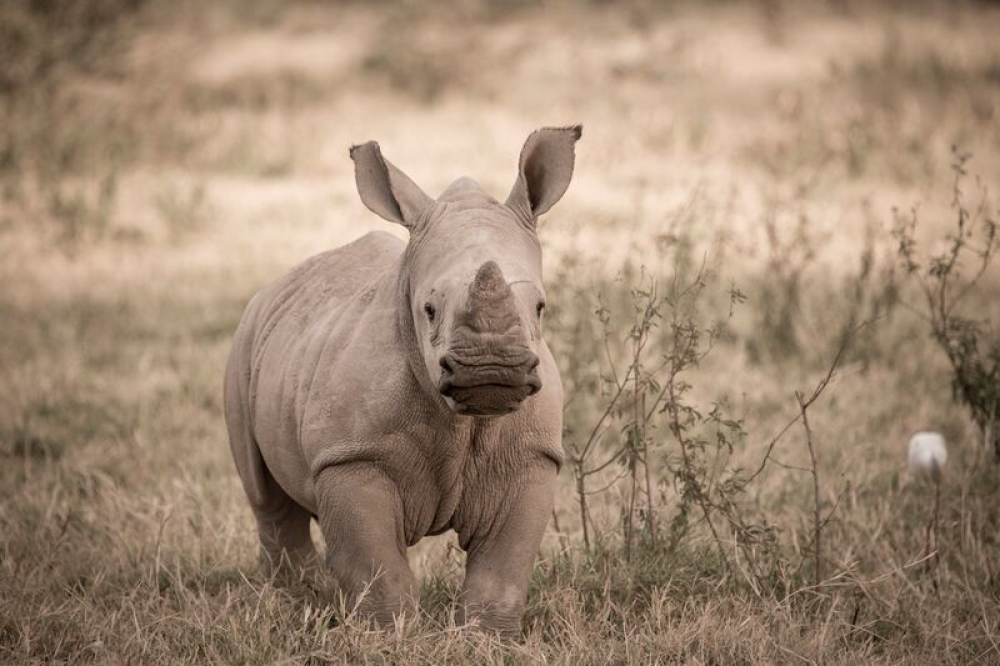A new partnership between Re:wild and Colossal Biosciences hopes to prevent the extinction of some of the world’s rarest animals, like the critically endangered vaquita. Colossal, a de-extinction company known for wanting to bring back the mammoth, has paired up with the conservation giant – headed up by scientists and Leonardo DiCaprio – to create the Avengers Endgame of conservation technology and research.
“This collaboration can bring multiple and varied benefits to highly threatened species,” Dr Barney Long, senior director of conservation strategies at Re:wild, told IFLScience. “When species numbers drop to very low levels they are intrinsically vulnerable to extinction. While Re:wild works with all the traditional conservation approaches such as threat removal and conservation breeding, when numbers get so low there are no guarantees that these methods will result in success.”
“By combining forces, we hope that our focal species will have a higher chance of recovering. New technologies can help speed up conservation breeding programs, resurrect lost genetic diversity, and preserve whole genomes as an insurance in case the worst happens. Every species has very specific needs so each recovery strategy will be tailored to that species and co-developed with government, conservation and community partners as appropriate.”
The vaquita, believed to only be represented in the wild by just 10 individuals, is one such species that may benefit from the partnership. It was issued an extinction alert by the International Whaling Commission (IWC), the first in the institution’s 70-year history, to spur action to help the world’s tiniest and most endangered marine mammal.
Now, help might just be on the way as Colossal and Re:wild share their knowledge and resources so that we can prevent extinctions and provide the habitats needed for wild animals to thrive.
“The path to de-extinction requires several emerging technologies to work in conjunction,” said Matt James, Chief Animal Officer at Colossal Biosciences, to IFLScience. “Each of those technologies or sciences is independently applicable to various conservation challenges and it is our responsibility to figure out how to create solutions using our technologies to address those challenges.”
“What we call the “de-extinction toolkit” is this amazing intersection of technologies that makes species restoration possible. However, each of those technologies or sciences can, on its own or in concert with other technologies, be applied directly to extant, endangered species.”
“For example, we are using our amazing genomic analysis and computational biology expertise to develop tools to restore lost genetic diversity to the heavily bottlenecked northern white rhino rescue efforts. We are using AI to analyze elephant behavior and create detection tools that will allow us to individually identify elephants across space and time.”

In March 2018, there were only two northern white rhino left, both of whom were female.
Image credit: © Robin Moore / Re:wild
“We are using our understanding of elephant genomics and related diseases to accelerate the development of vaccines that are critically important in the fight against a deadly elephant herpes virus. These are just a few examples of what we are doing currently, but as we continue to roll out our conservation strategy you will see that we will have hundreds of touchpoints in the fight against extinction today as we build technologies to restore extinct species tomorrow.”
Re:wild has long been dedicated to protecting and recovering species that are down to their last few individuals in the wild, but according to Long, for some, simply protecting habitats is no longer enough. It’s hoped that by combining with Colossal’s advances in the fields of genomics and assisted reproductive technologies, gene editing, and computational biology, this might just be the dynamic duo to get the job done for species on the brink, like the vaquita.
“In a similar way that the Apollo moon missions fast-tracked the development of a whole host of new technologies that we take for granted today, we hope that the new technologies being developed by Colossal will add a whole suite of new tools to the conservation of Critically Endangered species that will prevent extinctions and speed up species recovery,” said Long.
“While preventing species from declining to such critical conditions in the first place is the best strategy, once we have overseen these declines, it is our moral obligation to reverse them and these new tools we hope will allow us to do this.”
Source Link: World's Rarest Mammal Issued First-Ever Extinction Alert From The IWC